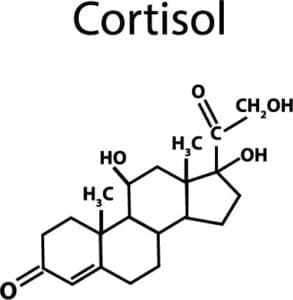
Stress Management & Treatment for Stress Disorders
Understanding and Managing Stress in Modern Life
In our fast-paced world, stress has become an almost universal experience. From work demands and academic pressures to personal finances and relationship challenges, stress affects people of all ages and backgrounds. While some level of stress is a normal part of life, prolonged or intense stress can lead to various health issues, including anxiety, depression, and reduced overall well-being.
The Stress Response
The body reacts to stress by first pumping adrenaline and then cortisol into the bloodstream to get the mind and body ready for immediate action. This “fight or flight” response is crucial for survival, but its prolonged activation can have detrimental effects on our health.
 Cortisol is essential for regulating inflammation, but when stress is constant, the body is exposed to an endless amount of cortisol, causing cells to become desensitized to this hormone. Long-term exposure to elevated cortisol levels can lead to damage of blood vessels and brain cells, as well as insulin resistance and painful joint diseases.
Cortisol is essential for regulating inflammation, but when stress is constant, the body is exposed to an endless amount of cortisol, causing cells to become desensitized to this hormone. Long-term exposure to elevated cortisol levels can lead to damage of blood vessels and brain cells, as well as insulin resistance and painful joint diseases.
Furthermore, chronic stress can disrupt nearly all of the body’s processes. It increases the risk of numerous health problems, including:
- Cardiovascular issues: Persistent high blood pressure can increase the risk of heart attacks and strokes.
- Gastrointestinal problems: Stress can exacerbate symptoms of irritable bowel syndrome and acid reflux.
- Obesity: High cortisol levels are linked to increased appetite and cravings for high-calorie foods.
- Cognitive decline: Chronic stress can affect brain structure and function, potentially increasing the risk of cognitive decline and dementia.
- Mental health disorders: Prolonged stress is a significant risk factor for anxiety and depression.
The Hidden Cost of Chronic Stress
How It Accelerates Aging

Chronic stress doesn’t just affect how you feel day-to-day; it fundamentally changes your biology. Research shows that heavy stress is nearly as damaging to longevity as smoking, literally shortening your lifespan while accelerating the aging process. The good news? Understanding the science behind stress gives us powerful tools to protect both our healthspan and lifespan.
Stress: A Measurable Threat to Your Longevity
We live in a world where stress has become the norm, but the consequences extend far beyond feeling overwhelmed. A landmark Finnish study revealed that for a 30-year-old, heavy chronic stress alone can shorten life expectancy by almost three years. This isn’t just about quality of life, it’s about the quantity of life itself.
The stress response system evolved to help us survive immediate physical threats through short bursts of heightened alertness. However, when this system remains constantly activated by modern pressures, stress hormones like cortisol and adrenaline begin to damage the very systems they were designed to protect.
How Chronic Stress Rewires Your Brain and Body
When stress becomes chronic, your body’s protective mechanisms become destructive forces:
Brain Changes That Drive Mental Health Issues

Prolonged cortisol exposure physically alters brain structure, shrinking the hippocampus (critical for memory and learning) while enlarging the amygdala (your brain’s alarm system). This creates a brain stuck in high-alert mode, making you more vulnerable to anxiety, depression, and PTSD. Recent 2024 research has even identified a specific stress-driven immune enzyme, MMP-8, that leaks into the brain and triggers depression-like symptoms.
Immune System Dysfunction and Inflammation
Chronic stress drives persistent low-grade inflammation throughout your body. While inflammation is usually a healing response, chronic activation damages tissues and fuels serious conditions, including heart disease, diabetes, and certain cancers.
The Cascade Effect on Overall Health
The effects of chronic stress create a domino effect that touches every aspect of your well-being. Stress disrupts sleep patterns, interferes with metabolism, and often leads to social withdrawal. This isolation itself becomes another stressor, creating a vicious cycle that accelerates aging and increases disease risk.
The Genetic Reality of Stress and Aging
Cutting-edge genetic research from the University of Colorado Boulder has identified over 400 genes associated with accelerated aging, many of which are directly linked to inflammation and stress pathways. This means stress doesn’t just make you feel older; it actually interacts with your DNA to accelerate biological decline.
This discovery supports what scientists call the “geroscience hypothesis”: to effectively prevent age-related diseases, we must address the fundamental aging process itself. Since chronic stress is a major driver of this process, learning to manage your stress response isn’t just about feeling better today—it’s about protecting your future health and longevity.
The Path Forward: Reclaiming Control
Understanding the science of stress and aging empowers you to take action. While we can’t eliminate all stress from modern life, we can learn to respond differently. Through evidence-based stress management techniques, you can literally rewire your brain and body for greater resilience, protecting both your immediate well-being and your long-term health.
The choice is yours: let chronic stress accelerate your aging, or take control of your stress response and invest in a longer, healthier life.
Schedule Your Appointment Today!
Recognizing Stress Symptoms
As stress levels increase, the body often sends warning signals. It’s crucial to recognize these signs early to prevent more serious health issues. Common symptoms include:
- Physical symptoms: Frequent headaches, muscle tension, fatigue, and sleep disturbances are often early indicators of stress.
- Cognitive symptoms: Difficulty concentrating, memory problems, and constant worrying can signify elevated stress levels.
- Emotional symptoms: Irritability, mood swings, and feeling overwhelmed are common emotional responses to stress.
- Behavioral symptoms: Changes in eating habits, increased use of alcohol or drugs, and social withdrawal can all be stress-related behaviors.
“It’s not stress that kills us, it is our reaction to it.” – Hans Selye
Stress Across the Lifespan
Childhood Stress
Stress often appears in children as behavioral changes. A typically outgoing child might become withdrawn, or a calm child might display sudden aggression. Physical complaints like stomachaches or headaches without apparent medical cause are also common. Academic performance may suffer, and sleep disturbances are frequent.
Adolescent Stress
Teenagers face unique stressors related to identity formation, academic pressure, and social dynamics. Common signs of stress in adolescents include:
- Changes in mood or personality
- Declining academic performance
- Risk-taking behaviors
- Changes in sleep patterns
- Physical symptoms like headaches or unexplained aches
Adult Stress
Work-related stress is often a primary concern for adults. The American Institute of Stress reports that 80% of workers feel stress on the job, and nearly half say they need help managing stress.
Job-related stressors often include:
- Unrealistic deadlines and workloads

- Poor work-life balance
- Job insecurity
- Conflicts with colleagues or superiors
Outside of work, adults may face stress from financial pressures, relationship issues, and caregiving responsibilities.
Stress in the Elderly
Older adults face unique stressors, including:
- Health concerns and chronic illnesses
- Loss of independence
- Financial worries, especially related to retirement
- Grief from losing loved ones
- Social isolation
The Impact of Chronic Workplace Stress
Chronic workplace stress can lead to a state of physical, emotional, and mental exhaustion known as burnout. The World Health Organization now recognizes burnout as an occupational phenomenon characterized by:
- Feelings of energy
 depletion or exhaustion
depletion or exhaustion - Increased mental distance from one’s job, or feelings of negativism or cynicism related to one’s job
- Reduced professional efficacy
A study by the American Psychological Association found that 65% of U.S. employees cited work as a significant source of stress, and more than one-third experienced chronic work stress.
Effective Stress Management Techniques
While it’s impossible to eliminate all stress, there are numerous evidence-based methods to manage and cope with stress effectively:
Mindfulness and Meditation
Research has shown that mindfulness meditation can actually change the brain’s structure, increasing the density of gray matter in regions linked to learning, memory, emotion regulation, and empathy. A study published in the journal “Psychiatry Research: Neuroimaging” found that participating in an eight-week mindfulness meditation program made measurable changes in brain regions associated with memory, sense of self, empathy, and stress.
Regular Exercise
Physical activity is a powerful stress reducer. It pumps up endorphins, the brain’s feel-good neurotransmitters. Regular exercise can increase self-confidence, improve mood, help you relax, and lower symptoms of mild depression and anxiety. A study published in the journal Psychosomatic Medicine found that exercise can buffer the effects of stress on physical and mental health.
Time Management and Prioritization
Learning to manage time effectively can significantly reduce stress. Techniques like the Eisenhower Matrix, which helps prioritize tasks based on their importance and urgency, can be particularly effective.
Nutrition and Stress
Diet plays a crucial role in stress management. Foods rich in complex carbohydrates can stimulate the brain’s production of serotonin, a neurotransmitter that has a calming effect. Omega-3 fatty acids in fish like salmon and tuna can help reduce stress hormones and protect against depression.
Sleep Hygiene
Quality sleep is essential for stress resilience. The National Sleep Foundation recommends adults aim for 7-9 hours of sleep per night. Establishing a regular sleep schedule, creating a relaxing bedtime routine, and avoiding screens before bed can significantly improve sleep quality.
stress resilience. The National Sleep Foundation recommends adults aim for 7-9 hours of sleep per night. Establishing a regular sleep schedule, creating a relaxing bedtime routine, and avoiding screens before bed can significantly improve sleep quality.
When to Seek Professional Help
While self-management techniques are often effective, there are times when professional help is necessary. Consider seeking help if:
- Stress is significantly impacting your daily life or relationships
- You’re experiencing persistent feelings of hopelessness or depression
- Physical symptoms of stress are severe or long-lasting
At my office, I understand that each individual’s experience with stress is unique. I utilize a range of empirically validated assessments to identify and quantify your specific challenges. From there, I develop a personalized treatment plan using evidence-based protocols.
My approach incorporates cognitive-behavioral therapy, stress resilience training, and the development of coping skills. I work closely with you in a confidential and private setting to help you achieve your goals and develop effective stress management strategies.
Take the next step towards a less stressful life.
Call my office for a confidential appointment at:
844-802-6512
or
Click Here To Book Your Appointment Online.
Remember, managing stress is a journey, not a destination. With the right tools and support, you can develop the resilience to navigate life’s challenges more effectively and enjoy improved overall well-being.

 depletion or exhaustion
depletion or exhaustion